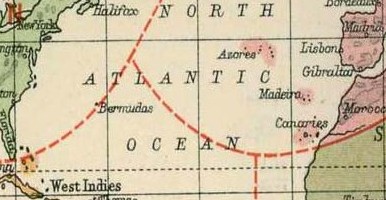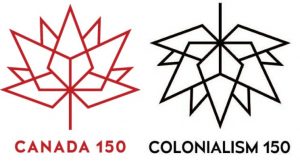The development of place-based symposiums emerged from a pilot interdisciplinary “workship” to introduce scholars and graduate students in the MES/MESc and MA in History programs at Nipissing University to think about what it means to conduct research on traditional and treaty territories, and to introduce students to the environmental histories of the Lake Nipissing region. The workship was hosted on the Chief Commanda II, which navigated across Lake Nipissing as part of the event.
Building on the workship idea, an international symposium, “Challenging Canada 150: Settler Colonialism and Critical Environmental Sciences (Symposium 1.0),” was organized at Nipissing University in relationship with Nipissing First Nation and Dokis First Nation in October 2017. The five-day intensive workshop included Anishinaabe elders Maurice Switzer, John Sawyer, Dan Commanda, and Lorraine Liberty Whiteduck, First Nation chiefs Gerry Duquette (Dokis FN) and Scott McLeod (Nipissing FN) with international, national, and Nipissing University scholars and students to showcase a broad range of research, including the histories of settler colonialism across the British Empire (with a focus on British North America); the environmental histories of “inland lakes” and watersheds; the colonial and toxic afterlives of resource development; collaborative research projects involving traditional ecological knowledge; and the histories of the environmental sciences.
A second symposium entitled, “Place-Based Reparative Environmental Histories (Symposium 2.0),” was organized as a critical intervention for the American Association of Environmental Historians conference in Ottawa in March 2020 (cancelled due to COVID19) to address the lack of Indigenous representation, and place-based awareness, at academic-history conferences, especially those that address contemporary and historical issues that Indigenous communities confront daily. The event connected Indigenous scholars, researchers, community activists, artists, and allies so that they can critically respond to this absence and foster dialogue and respect for different ways of knowing the past. Symposium 2.0 was in partnership with a number of the First Nation communities that share the traditional territory of Kiji Sibi (Ottawa River watershed) – Kitigan Zibi Anishinabeg First Nation, Algonquins of Pikwàkanagàn First Nation, Nipissing First Nation, Dokis First Nation – and various interdisciplinary scholars and museum practitioners to respond to the Truth and Reconciliation Commission’s (TRC) recommendations, and to focus on the environmental histories of Turtle Island (North America), which speak directly to colonization’s long-lasting impacts and legacies.
Please see details below.
Symposium 2.0: Place-based Reparative Environmental Histories
The official ASEH 2020 Program, which include the circle sessions organized as part of Symposium 2.0 Program_2020reduced
The official Place-Based Symposium 2.0 Program, which included details on the circle sessions, the hotel art installation, and a special day at the Library and Archives Canada: 1920 ASEH Symposium Booklet 14Apr20
Symposium 1.0: Challenging Canada 150: Settler Colonialism and Critical Environmental Science (October 2017)
In October 10, 2017, Nipissing University hosted a five day international symposium to consider the question of how we can bring together the humanities and geophysical sciences to revisit how we examine environments in the past within the context of settler colonialism.
Nipissing University’s two Canada Research Chair holders, Kirsten Greer and April James, joined efforts with Alan Lester (Geography, University of Sussex), a leading British scholar in settler colonial studies to bring together an impressive and varied group of indigenous knowledge holders and scholars to consider the meaning of Canada’s 150th anniversary.
Highlights of the symposium included Keynote addresses by:
- Scott McLeod, the Chief of Nipissing First Nation, who will speak about the Lake Nipissing fishery
- Alan Lester (Sussex) who will speak about Lake Nipissing in the context of the global colonial project
- Paul Nadasdy (Anthropology, Cornell University) who considers how environmental knowledge gets used in Canadian wildlife management
- Wendy Makoons Geniusz (Ojibwe Language, University of Wisconsin-Eau Claire) whose talk “Nookomis Giizhik, Nimisenh, Miina’ig, Ingijibinaa: Working with Plants and Trees to Open Lines of Communication” aims to illuminate philosophical differences between cultures and open possibilities for unity
- Deborah McGregor (Canada Research Chair in Indigenous Environmental Justice, York University) who will speak on the topic “Traditional Ecological Knowledge: Storytelling about the Earth”
Please visit the symposium site for more information: http://challengingca150.nipissingu.ca/
Some of the highlights of our event are featured here: Collage of photos from symposium 20 Nov 2017-7

